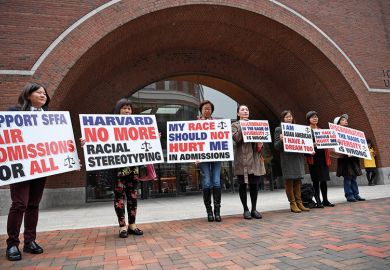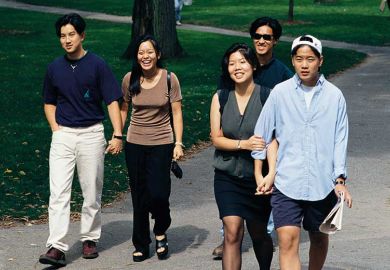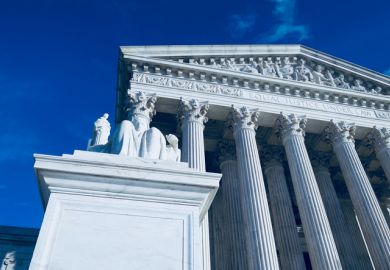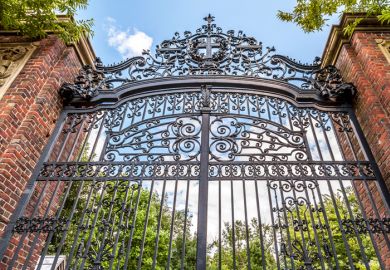The three-week trial over Harvard University’s affirmative action practices has drawn to a close, but further submissions will be made before a federal judge rules on the matter.
The judge, Allison Burroughs, heard closing arguments on 2 November on behalf of Harvard and an Asian American student suing the university for excluding him in 2013 from its freshman class.
The judge, with another case scheduled to begin the following week, then held out the likelihood of convening follow-up hearings, which would take her into 2019 before she decides the case.
Any appeal of her decision by either side would likely begin a several-year process of reaching the US Supreme Court, where a new Republican-appointed majority may embrace the case as an opportunity to upend the court’s past approval of affirmative action policies at colleges nationwide.
The plaintiff, Michael Wang, is being represented by a conservative activist who has previously tried to undermine affirmative action by portraying white students rejected by US colleges as victims of discrimination.
The activist, Edward Blum, brought data showing that Harvard accepts far fewer ethnic Asian applicants than their test scores and academic achievements warrant. Harvard, however, accepts far more Asian Americans than their share of the US population, and it has argued that diversity of its student body is an important asset for all who attend the institution.
The three-week trial nevertheless left Harvard administrators in the position of arguing they do not unlawfully discriminate but that at the same time they clearly show preferences for students based on factors that include race.
Towards the end of the three-week session, Harvard officials acknowledged that they gave their admissions officers new written guidance just this past September – only days prior to Judge Burroughs’ ruling that the case would go to trial – telling them not to consider race or ethnicity when rating applicants.
Harvard’s director of admissions, Marlyn McGrath, downplayed the significance, telling Judge Burroughs that such guidelines are regularly updated and that the underlying intent – no racial discrimination – was always in place. Relative to those of past years, the September change was “moderate”, Ms McGrath told the judge.
Although the three-week process brought no final resolution of Mr Wang’s complaint, some bigger-picture matters became clear. One, data presented at trial showed that about a third of Harvard's incoming class each year consists of applicants with a family tie to the institution, such as an alumnus parent, often white and wealthy.
Second, many Asian Americans rejected Mr Blum’s attempt to portray Chinese Americans such as Mr Wang as fundamentally victims of college admissions policies aimed at helping blacks and other minorities. Several argued that lower-income Asian Americans of various non-Chinese origins, as well as black Americans, were being left out of Harvard through its fully legal prioritisation of wealthier applicants.
Nicole Gon Ochi, an attorney with Asian Americans Advancing Justice, brought students to the trial to testify in favour of Harvard’s affirmative action efforts, which she regards as helpful to most Asian Americans.
Mr Blum, who declined a request for comment, does not appear to share the sense that many Asian Americans also need a boost to overcome historical biases, and instead seems focused on ending those protections, Ms Gon Ochi said. “He’s just using Asian Americans as the new face of it to get more traction,” she said.
Register to continue
Why register?
- Registration is free and only takes a moment
- Once registered, you can read 3 articles a month
- Sign up for our newsletter
Subscribe
Or subscribe for unlimited access to:
- Unlimited access to news, views, insights & reviews
- Digital editions
- Digital access to THE’s university and college rankings analysis
Already registered or a current subscriber?








